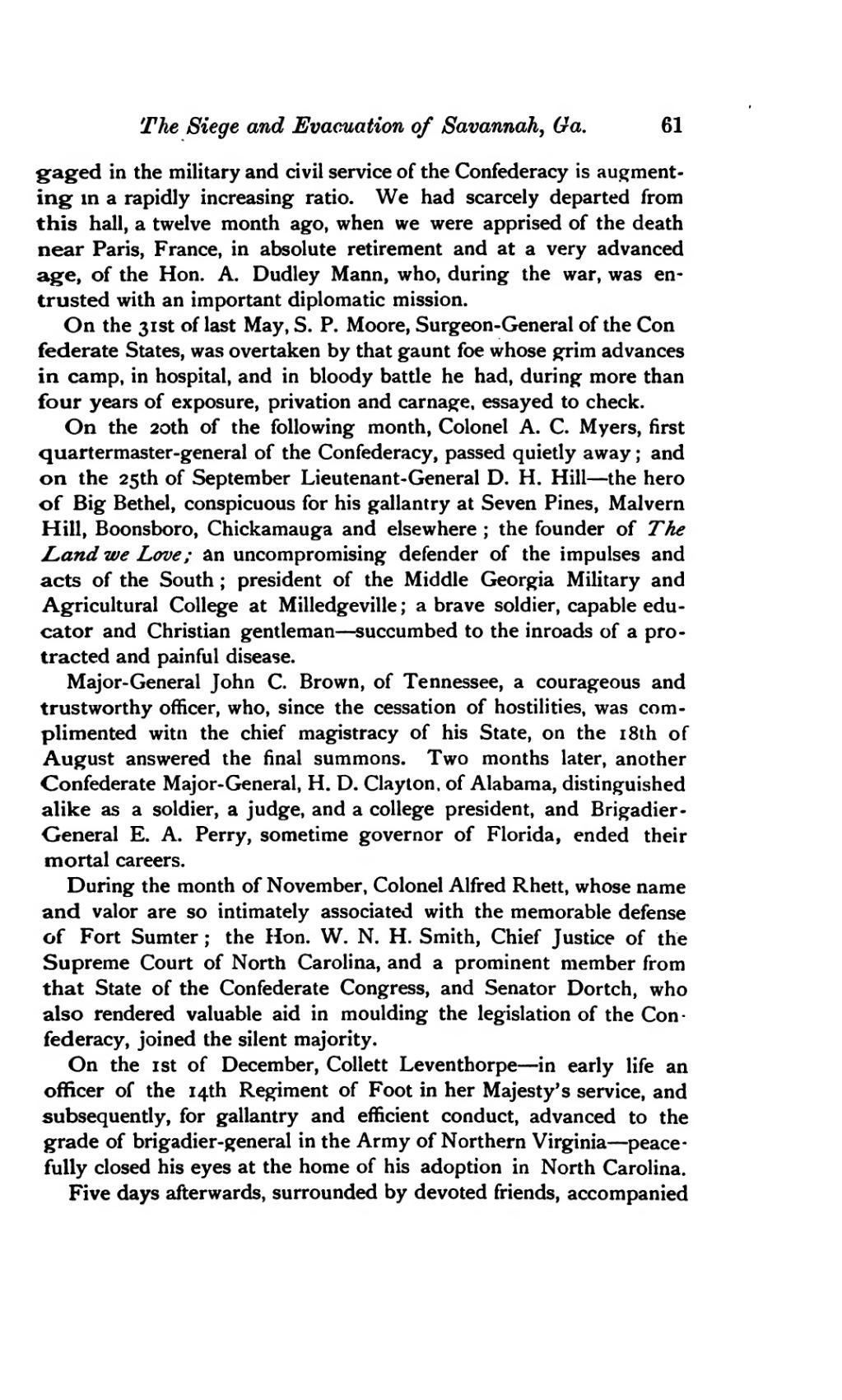The Siege and Evacuation of Savannah^ Ga, 61
gaged in the military and civil service of the Confederacy is augment- ing in a rapidly increasing ratio. We had scarcely departed from this hall, a twelve month ago, when we were apprised of the death near Paris, France, in absolute retirement and at a very advanced age, of the Hon. A. Dudley Mann, who, during the war, was en- trusted with an important diplomatic mission.
On the 31st of last May, S. P. Moore, Surgeon-General of the Con federate States, was overtaken by that gaunt foe whose grim advances in camp, in hospital, and in bloody battle he had, during more than four years of exposure, privation and carnage, essayed to check.
On the 20th of the following month. Colonel A. C. Myers, first quartermaster-general of the Confederacy, passed quietly away ; and on the 25th of September Lieutenant-General D. H. Hill — the hero of Big Bethel, conspicuous for his gallantry at Seven Pines, Malvern Hill, Boonsboro, Chickamauga and elsewhere ; the founder of The Land we Love ; an uncompromising defender of the impulses and acts of the South ; president of the Middle Georgia Military and Agricultural College at Milledgeville ; a brave soldier, capable edu- cator and Christian gentleman — succumbed to the inroads of a pro- tracted and painful disease.
Major- General John C. Brown, of Tennessee, a courageous and trustworthy officer, who, since the cessation of hostilities, was com- plimented witn the chief magistracy of his State, on the i8th of August answered the final summons. Two months later, another Confederate Major- General, H. D. Clayton, of Alabama, distinguished alike as a soldier, a judge, and a college president, and Brigadier - General E. A. Perry, sometime governor of Florida, ended their mortal careers.
During the month of November, Colonel Alfred Rhett, whose name and valor are so intimately associated with the memorable defense of Fort Sumter ; the Hon. W. N. H. Smith, Chief Justice of the Supreme Court of North Carolina, and a prominent member from that State of the Confederate Congress, and Senator Dortch, who also rendered valuable aid in moulding the legislation of the Con- federacy, joined the silent majority.
On the I St of December, Collett Leventhorpe — in early life an officer of the 14th Regiment of Foot in her Majesty's service, and subsequently, for gallantry and efficient conduct, advanced to the grade of brigadier-general in the Army of Northern Virginia — peace- fully closed his eyes at the home of his adoption in North Carolina.
Five days afterwards, surrounded by devoted friends, accompanied
